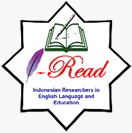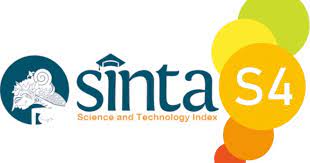The effectiveness of integrating classcraft: A gamified learning platform on enhancing writing skills among elementary school learners
DOI:
https://doi.org/10.22219/englie.v5i2.35022Keywords:
Classcraft, Gamification, Writing Skills, elementary studentsAbstract
The objective of this study was to examine the influence of incorporating Classcraft, a gamified learning platform, on the writing abilities of elementary school students. The research employed a quantitative approach, utilizing a pre-test post-test control group design. Thirty second-grade elementary school pupils from a variety of schools participated. The paired sample t-test was employed to analyze the data that was collected through a written test. The results demonstrated a substantial disparity in the writing skills of the students who utilized Classcraft between the pre-test and post-test scores, suggesting that the gamified platform significantly improved their writing abilities. The results provide empirical evidence that supports the use of Classcraft as an educational intervention to enhance the writing proficiency of elementary students. The research posits that the integration of gamification through platforms such as Classcraft can establish a more engaging and pleasant learning environment, resulting in improved writing outcomes for young learners.
Downloads
References
Arimbawa, I. G. P. A. (2021). Penerapan wordwall game quis berpadukan classroom untuk meningkatkan motivasi dan prestasi belajar biologi. Indonesian Journal of Educational Development, 2(2), 324–332. https://doi.org/10.5281/zenodo.5244716
Armanda, M. L., & Priyana, J. (2023). Incorporating gamification elements from classcraft in english instruction: A scoping review. UC Journal: ELT, Linguistics and Literature Journal, 4(2), 95–110. https://doi.org/10.24071/uc.v4i2.7559
Arochman, T., Margana, M., Ashadi, A., Achmad, S., & Nugrahaeni, D. A. (2024). The effect of project-based learning on English writing skill for EFL learners. Journal of Pedagogical Research, 8(2), 310–324. https://doi.org/10.33902/JPR.202423961
Ben-Eliyahu, A. (2021). Sustainable learning in education. Sustainability (Switzerland), 13(8), 4250. https://doi.org/10.3390/su13084250
Brečka, P., Valentová, M., & Tureková, I. (2022). Digital technologies in environmental education. TEM Journal, 11(2), 726–730. https://doi.org/10.18421/TEM112-28,
Brown, H. D. (2014). Principles of Language Learning and Teaching: A Course in Second Language Acquisition.
Bušljeta, R. (2013). Effective use of teaching and learning resources. Czech-Polish Historical and Pedagogical Journal, 5(2), 55–69. https://doi.org/10.2478/cphpj-2013-0014
Cavus, N., Ibrahim, I., Ogbonna Okonkwo, M., Bode Ayansina, N., & Modupeola, T. (2023). The effects of gamification in education: A systematic literature review. BRAIN. Broad Research in Artificial Intelligence and Neuroscience, 14(2), 211–241. https://doi.org/10.18662/brain/14.2/452
Chen, J., & Liang, M. (2022). Play hard, study hard? The influence of gamification on students’ study engagement. Frontiers in Psychology, 13(October). https://doi.org/10.3389/fpsyg.2022.994700
Degeng, I. N. S., & Sudana, N. (2013). Ilmu pembelajaran: Klasifikasi variabel untuk pengembangan teori dan penelitian. Bandung: Kalam Hidup.
Deterding, S., O’Hara, K., Sicart, M., Dixon, D., & Nacke, L. (2011). Gamification: Using game design elements in non-gaming contexts. Conference on Human Factors in Computing Systems - Proceedings, May 2011, 2425–2428. https://doi.org/10.1145/1979742.1979575
Dichev, C., & Dicheva, D. (2017). Gamifying education: What is known, what is believed and what remains uncertain: A critical review. International Journal of Educational Technology in Higher Education, 14(1), 8–9. https://doi.org/10.1186/s41239-017-0042-5
Djamas, D., Tinedi, V., & Yohandri. (2018). Development of interactive multimedia learning materials for improving critical thinking skills. International Journal of Information and Communication Technology Education. https://doi.org/10.4018/IJICTE.2018100105
Domínguez, A., Saenz-De-Navarrete, J., De-Marcos, L., Fernández-Sanz, L., Pagés, C., & Martínez-Herráiz, J. J. (2013). Gamifying learning experiences: Practical implications and outcomes. Computers and Education, 63, 380–392. https://doi.org/10.1016/j.compedu.2012.12.020
Hamari, J., Koivisto, J., & Sarsa, H. (2014). Does gamification work? Proceedings of the Annual Hawaii International Conference on System Sciences, January(6–9), 3025–3034.
Hattie, J., & Timperley, H. (2007). The power of feedback. Review of Educational Research, 77(1), 81–112. https://doi.org/10.3102/003465430298487
Hays, J., & Reinders, H. (2020). Sustainable learning and education: A curriculum for the future. International Review of Education, 66, 29–52. https://doi.org/10.1007/s11159-020-09820-7
Hong, W. (2008). Exploring educational use of blogs in U.S. education. US-China Education Review, 5(10), 34–38.
Hu, J. (2020). Gamification in learning and education: Enjoy learning like gaming. British Journal of Educational Studies, 68(2), 265–267. https://doi.org/10.1080/00071005.2019.1682276
Jamaris, Hidayat, H., & Muji, A. P. (2021). Mobile learning application: Effect of learning readiness and community learning toward technology management and mobile learning. International Journal of Online and Biomedical Engineering, 17(13), 20–32. https://doi.org/10.3991/ijoe.v17i13.26871
Johnson, D. W., & Johnson, R. T. (1999). Making cooperative learning work. Theory into Practice, 38(2), 67–73. https://doi.org/10.1080/00405849909543834
Khaldi, A., Bouzidi, R., & Nader, F. (2023). Gamification of e-learning in higher education: A systematic literature review. Smart Learning Environments, 10, 10. https://doi.org/10.1186/s40561-023-00227-z
Lestari, D. E. (2020). Rethinking the roles of English lecturers in the digital era. Metathesis: Journal of English Language, Literature, and Teaching, 4(2), 137–150. https://doi.org/10.31002/metathesis.v4i2.2508
Mirata, V., Awinia, C., Godson, E., & Bergamin, P. (2022). The future of technology-based learning at the Open University of Tanzania. International Journal of Emerging Technologies in Learning, 17(15), 28–42. https://doi.org/10.3991/ijet.v17i15.33273
Nee, C. C., Yunus, M. M., & Suliman, A. (2019). ICT: An effective platform to promote writing skills among Chinese primary school pupils. Arab World English Journal, 10(4), 223–237. https://doi.org/10.24093/awej/vol10no4.17
Ngongo, V. L., Hidayat, T., & Wijayanto. (2019). Pendidikan di era digital. Prosiding Seminar Nasional Pendidikan Program Pasca Sarjana Universitas PGRI Palembang, 2, 628–638.
Nnaekwe, U. K., & Ugwu, P. (2019). The concept and application of ICT to teaching/learning process. International Research Journal of Mathematics, Engineering and IT, 6(2), 10–22.
Nurfadillah, N. Ferdiansyah, D., & Fatahullah, F. (2021). Penerapan media pembelajaran domino karakter dengan teknik shadow teacher dalam meningkatkan hasil belajar peserta didik autisme pada materi operasi hitung di masa pembelajaran jarak jauh. Jurnal PENA : Penelitian Dan Penalaran, 8(2), 162–175. https://doi.org/10.26618/jp.v8i2.6684
Osei-Himah, V., & Adu-Gyamfi, K. (2022). Teachers’ perspective of effective use of teaching and learning materials in basic school integrated science lessons. Asian Journal of University Education. https://doi.org/10.24191/ajue.v18i1.17195
Pange, J., Degteva, A., & Nikiforidou, Z. (2022). ICT tools in designing preschool educational activities on historical events. Technical Annals, 1(1), 309–316. https://doi.org/10.12681/ta.32178
Parody, L., Santos, J., Trujillo-Cayado, L. A., & Ceballos, M. (2022). Gamification in engineering education: The use of classcraft platform to improve motivation and academic performance. Applied Sciences (Switzerland), 12(22), 11832. https://doi.org/10.3390/app122211832
Rubin, H., Estrada, L., & Honigsfeld, A. (2023). Digital-age teaching for english learners: A guide to equitable learning for all students. Dallas: Corwin. https://doi.org/10.4135/9781071824429
Sailer, M., Hense, J. U., Mayr, S. K., & Mandl, H. (2017). How gamification motivates: An experimental study of the effects of specific game design elements on psychological need satisfaction. Computers in Human Behavior, 69(January), 371–380. https://doi.org/10.1016/j.chb.2016.12.033
Saleem, A. N., Noori, N. M., & Ozdamli, F. (2022). Gamification applications in e-learning: A literature review. Technology, Knowledge and Learning, 27, 139–159. https://doi.org/10.1007/s10758-020-09487-x
Sanchez, E., Young, S., & Jouneau-Sion, C. (2017). Classcraft: From gamification to ludicization of classroom management. Education and Information Technologies, 22, 497–513. https://doi.org/10.1007/s10639-016-9489-6
Saputra, M. D. (2022). Gamifikasi berbasis classcraft sebagai inovasi pembelajaran online pada masa pandemi covid-19. Research and Development Journal of Education, 8(2), 852. https://doi.org/10.30998/rdje.v8i2.11558
Sipone, S., Abella-García, V., Rojo, M., & Dell’olio, L. (2021). Using classcraft to improve primary school students’ knowledge and interest in sustainable mobility. Sustainability (Switzerland), 13(17), 9939. https://doi.org/10.3390/su13179939
Tarigan, H. G. (2008). Menulis Sebagai Sesuatu Keterampilan Bahasa. Bandung: Angkasa Bandung.
Vahedi, Z., Zannella, L., & Want, S. C. (2021). Students’ use of information and communication technologies in the classroom: uses, restriction, and integration. Active Learning in Higher Education, 22(3). https://doi.org/10.1177/1469787419861926
Wang, S., Gorbunova, N. V., Masalimova, A. R., Bírová, J., & Sergeeva, M. G. (2018). Formation of academic mobility of future foreign language teachers by means of media education technologies. Eurasia Journal of Mathematics, Science and Technology Education, 14(3), 959–976. https://doi.org/10.12973/ejmste/81150
Wijekumar, K., Graham, S., Harris, K. R., Lei, P. W., Barkel, A., Aitken, A., Ray, A., & Houston, J. (2019). The roles of writing knowledge, motivation, strategic behaviors, and skills in predicting elementary students’ persuasive writing from source material. Reading and Writing, 32(6), 1431–1457. https://doi.org/10.1007/s11145-018-9836-7
Zhang, Q., Yu, L., & Yu, Z. (2021). A content analysis and meta-analysis on the effects of classcraft on gamification learning experiences in terms of learning achievement and motivation. Education Research International, 2021, 1–21. https://doi.org/10.1155/2021/9429112
Downloads
Published
How to Cite
Issue
Section
License
Copyright (c) 2024 Jayanti et al

This work is licensed under a Creative Commons Attribution-ShareAlike 4.0 International License.
Authors who publish with English Learning Innovation (englie) agree to the following terms:
- For all articles published in English Learning Innovation (englie), copyright is retained by the authors. Authors give permission to the publisher to announce the work with conditions. When the manuscript is accepted for publication, the authors agree to automatic transfer of the publishing right to the publisher.
- Authors retain copyright and grant the journal right of first publication with the work simultaneously licensed under a Creative Commons Attribution-ShareAlike 4.0 International License that allows others to share the work with an acknowledgement of the work's authorship and initial publication in this journal.
- Authors are able to enter into separate, additional contractual arrangements for the non-exclusive distribution of the journal's published version of the work (e.g., post it to an institutional repository or publish it in a book), with an acknowledgment of its initial publication in this journal.
- Authors are permitted and encouraged to post their work online (e.g., in institutional repositories or on their website) prior to and during the submission process, as it can lead to productive exchanges, as well as earlier and greater citation of published work (See The Effect of Open Access).
This work is licensed under a Creative Commons Attribution-ShareAlike 4.0 International License.
















1.png)












